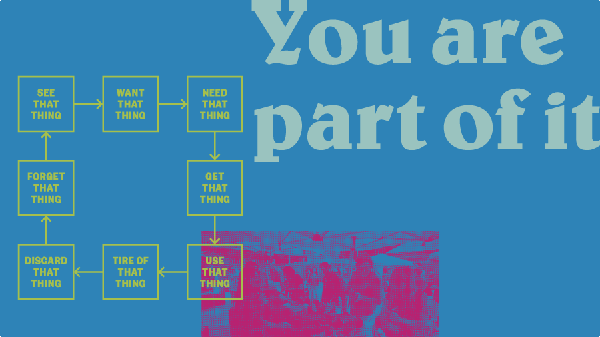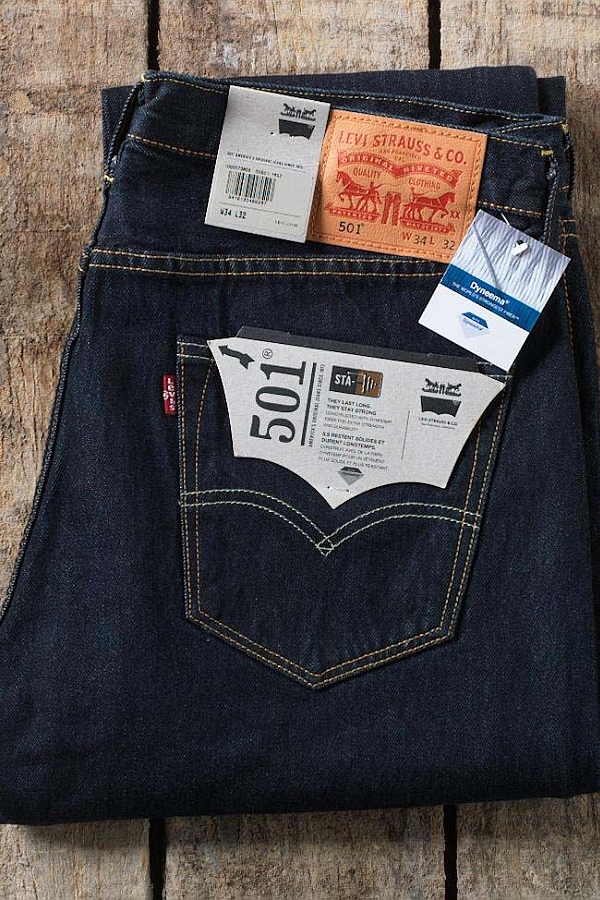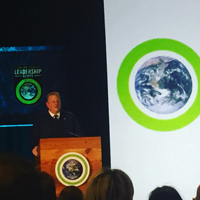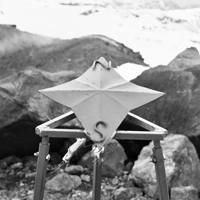
Sustainable solutions are key business strategies for many of the top global leading brands targeting youth culture these days. As we’ve noted in our various Sustainability and the State of the Future Youth Culture Studies, sustainability issues are vitally important to a new generation of young people who have grown-up with recycling as a part of their lives.
In this latest report, we outline 3 important new initiatives that H&M, Levi Strauss, and Patagonia are embarking on when it comes new moving into next season and beyond.
H&M Conscious Foundation
In the next few years, the H&M Conscious Foundation will address three global issues with the help of half a billion SEK, donated from the Stefan Persson family. The foundation is giving H&M employees and customers the power to decide which three issues to be supported.
Starting October 22, everyone can place their vote at makeadifference.hm.com.
With the UN Millennium Development Goals as inspiration, the H&M Conscious Foundation will use its resources to address some of the world’s most challenging problems, making a difference in communities where H&M operates. This means that the votes from H&M employees and customers will have a great impact.
“It is our responsibility to make a positive impact in the communities where H&M operates. Now we invite our employees and customers to tell us what they think the H&M Conscious Foundation should support. This will guide us to understand what issues are of concern to a large group of people across the world,” says Karl-Johan Persson, CEO H&M and board member of the H&M Conscious Foundation.
The H&M Conscious Foundation has consulted a number of experts, selected for their commitment within different development issues, about which global challenges they find most immediate. Clean water, strengthening women, safeguarding natural resources, education and reduction of poverty through self-empowerment are the five most prioritized. These are also the issues to vote for at makeadifference.hm.com. When the top three issues are decided by H&M employees and customers, the foundation will partner with three world-renowned organizations to globally address these issues.
Additionally, the foundation will initiate local programs in countries where H&M operates, mirroring the themes selected by the voting.
As inspiration on makeadifference.hm.com, the experts reveal which global challenges they find most immediate and why. Among them are Professor Jeffrey D. Sachs and Professor Johan Rockström.
“It is great that the H&M Conscious Foundation takes on the challenges of sustainable development by listening to the ideas of the global public. I am confident that with their commitment and global reach these efforts will promote many important initiatives. We can indeed be the generation that ends poverty and protects the Earth’s ecosystems and biodiversity”, says Professor Jeffrey D. Sachs, Director, Earth Institute, Columbia University and Special Advisor to United Nations Secretary-General on the Millennium Development Goals.
“The world faces enormous challenges, and the H&M Conscious Foundation can help find practical, innovative and sustainable solutions to some of the most important issues of our time”, says Johan Rockström, Professor in Environmental Science at Stockholm University and Director of Stockholm Resilience Centre.
Voting: Everyone can vote at makeadifference.hm.com between until October 29, 2013. It is also possible to monitor how the voting process proceeds and which challenges are in the lead. The voting site is available in 18 languages.
Five topics: H&M employees and customers can vote for one of these five topics: Clean water, strengthening women, safeguarding natural resources, education and reduction of poverty through self-empowerment.
The experts are: Archbishop Desmond Tutu – Archbishop Emeritus of Cape Town, Nobel Peace Laureate and Honorary Elder, Prof Jeffrey D. Sachs – Director, Earth Institute, Columbia University and Special Advisor to United Nations Secretary-General on the Millennium Development Goals, Ela Bhatt – Founder of the Self-Employed Women’s Association (SEWA), Founder Chair of the Cooperative Bank of SEWA and member of The Elders, Sir Richard Branson – Founder and Chairman of the Virgin Group, Prof Johan Rockström – Professor in Environmental Science at Stockholm University and Director of Stockholm Resilience Centre, Alek Wek – Supermodel and member of the US Committee for Refugees’ Advisory Council, José María Figueres Olsen – Minister of State and elected President of Costa Rica (1994-1998) and President of Carbon War Room.

Levi’s X Dyneema For Longer-Lasting Jeans
While it may seem counter-intuitive for a denim brand to make jeans that last longer, Levi Strauss has announced a new collaboration with Dyneema, creators of the world’s strongest fiber called Ultra High Molecular Weight Polyethylene.
Dyneema is the material found in heavy-duty workwear ranging from metalworker’s gloves to safety gear for cyclists. The fiber is now going to also be used in Levi’s 501 Warrior and Trooper denim styles for an added 25% improvement in abrasion resistance. Obviously this would attract athletes like skaters who often turn to workwear gear due to abrasion-resistance.
But what’s interesting about Dyneema is that it’s not stiff but rather softer in form and it will make denim jeans last that much longer—something that Levi’s is trying to install as it lowers it’s carbon footprint.
The Responsible Economy by Patagonia
The final sustainability program that we’re highlighting is the “Responsible Economy” initiative by Patagonia. According to Patagonia, we are using the equivalent resources of one and a half planets, yet we live on only one. All the indicators of earthly health are in deteriorating: plentiful freshwater, clean air, arable land, robust fisheries and biodiversity. How do we reverse this decline (and accompanying climate change) before it becomes catastrophic?
Here’s what the Responsible Economy is all about from Patagonia’s goals: Most conversations addressing that question hone in on technological solutions. Each year we attend sustainability conferences where the talk centers on innovation as the way to reduce resource use and waste. But at these conferences, among decent people doing their best, there is always an elephant in the room, concealed behind a curtain few are willing to draw to the side. The elephant is growth-based capitalism, and the assumption that a growth economy equals prosperity and a healthy society.
This campaign names and confronts the elephant. And it will explore what alternatives look and feel like, from large -scale economies to small, local ones. We see a growing global dissatisfaction with the way the present economy relies on relentless consumption in order to function, while delivering less social benefit than it promises. At the same time, we see trends toward meaningful change in both large corporate and industrial movements, and innovative, community-minded businesses.
We know we must consume less, and far more slowly – as well as innovate as quickly and ingeniously as we can. What is a responsible economy? It’s one that cultivates healthy communities, creates meaningful work, and takes from the earth only what it can replenish. It’s one where all the indicators currently going in the wrong direction – CO2 emissions, ocean acidification, deforestation, desertification, species extinction, water contamination, toxic chemical release – all those things that are leading us to bankruptcy, will even out, then reverse. What would make up this economy? Where do we already see examples?
During the next two years, Patagonia will explore these questions. We don’t have all the answers – but, we invite you to join us as we seek out the stories, solutions, examples, and new leaders of the responsible economy. This is the most ambitious and important endeavor we’ve ever undertaken. “Our other environmental campaigns (the depletion of the oceans, pollution of water, obstacles to migration paths for animals) have been about the symptoms of this problem,” said Yvon Chouinard, the founder and owner of Patagonia. “Now we are addressing the core.”
Stay tuned.
For more information about Label Networks’ Sustainability Studies and Youth Culture, or for proprietary research, branding or presentations on this topic, email info@labelnetworks.com; (323) 630-4000.


